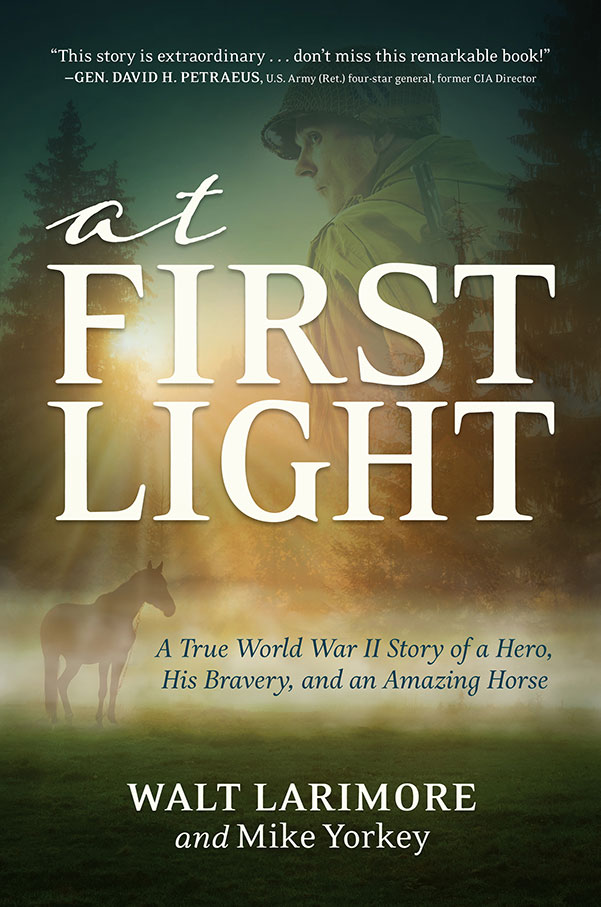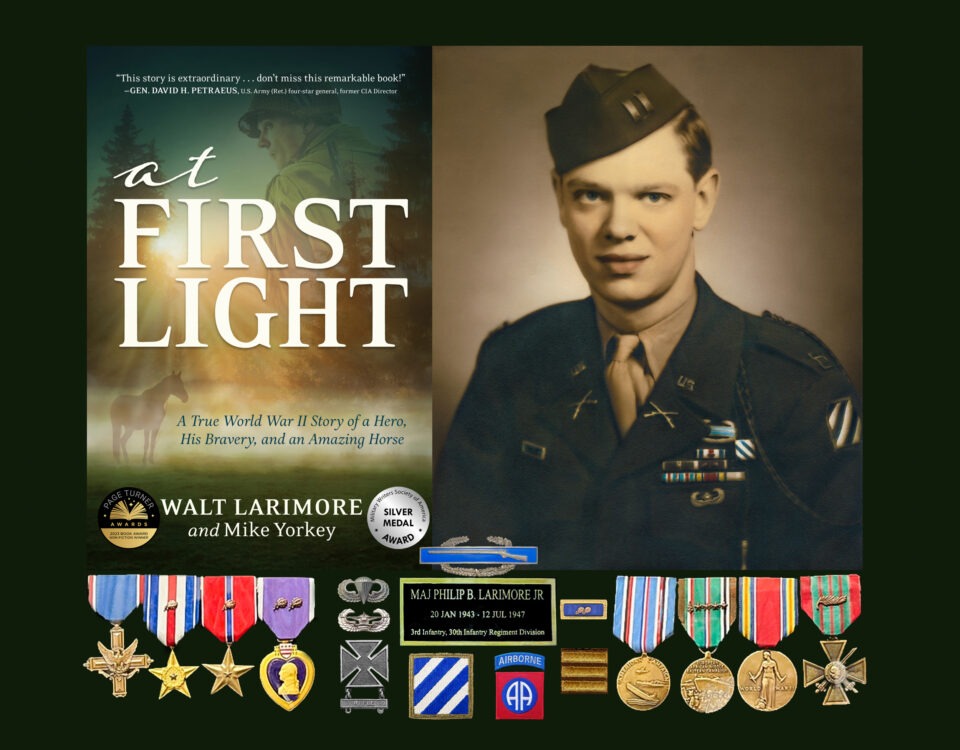
“Vaccine News You Can Use” for Family Physicians – Winter 2024
March 6, 2024
“At First Light” just released in soft cover
March 7, 2024Throughout this period there were almost nightly actions around the scattered homes that once housed Italian farm families on Mussolini’s Anzio-Nettuno model Fascist farm community. Each house was given a number (1,2,3) on neatly marked air photos and maps.

The Germans made these stone houses into fortified strongpoints. Bunkers were dug into the floors. When the houses were destroyed by tanks, TD[1] artillery or mortar fire, the debris fell on top of the bunkers and served to increase camouflage and protection. The Germans invariably set up machine guns in an inner room and then knocked out small holes through the next two walls for a field of fire. The uncanny effect of this was that grenades thrown into the rooms from which the fire seemed to be emanating had no effect on the gunners safely ensconced in an inner room. This was but one of the many clever devices concocted by the ever-cunning, ever-dangerous enemy on Anzio.
The enemy also used manure piles and straw stacks in the yards of the houses for automatic-weapons positions and used the ovens located fifteen yards from the houses as machine-gun nests.[2]
Throughout the holding phase (after March 1), the enemy was relentless. If one of the men dared to stick his head above his foxhole, he risked sudden decapitation. One soldier wrote, “You absolutely, positively, had to stay in your foxhole for fear of getting your head blown off. Sometimes, you couldn’t even get out to go to the bathroom. I had two tin cans in my foxhole—one was for making lemonade, and the other was for urinating. The challenge,” said (the soldier) jokingly, “was remembering which can was which.”[3]
(Another soldier) added, “I stayed in one foxhole for twenty-three days and twenty-three nights. It was cold, blustery, and wet. You had to get in a hole and stay there, especially during daylight hours. That was when you had to worry about sniper fire. All of our activity happened at night—getting rations, carrying your dead out, carrying ammunition in and walking patrol. You were active all night, so you had to stay awake. There were two men to a foxhole; one man had to stand guard at all times … One of us would sleep one-hour, while the other one stood guard.”[4]
The men passed the time, in these dreadful confines, by talking, reading, sleeping, playing cards, and writing letters home. Consequently, the men quickly developed special relationships, many of which endured long after the war ended.[5]
Foxhole buddies were closer than friends, closer than brothers. Their trust in and knowledge of each other was total. They got to know each other’s life stories, what they did before the Army, and what their parents, brothers, and sisters were like … Without thinking about it, they would share their last bite or last drink of water or a blanket—and they would die for one another.[6]
The incessant spring rains added to the misery and turned the coastal plain into a quagmire, making living conditions virtually unbearable. The rain filled the foxholes, and the mud sucked at the feet of the men like quicksand. The beachhead quickly resembled the Western Front during World War One—a honeycomb of wet and muddy trenches, foxholes and dugout. According to one soldier, “everything was wet and muddy. You couldn’t dig into the ground without striking water. It was just like a swamp. If you were unfortunate enough to get wounded,” he recalled, “you often had to lie in your water filled foxholes until a medic could come to your aid.” (Another soldier), always the consummate optimist, added” “The only think good about the rain was that it kept enemy armor away or at least confined it to the few hard roads in the area where it could be neutralized by mines and tank destroyer or support artillery fire.”[7]
[1] TD: Tank destroyer, highly mobile artillery (Stannard, 312).
[2] Prohme, 146.
[3] Champagne, 61.
[4] Champagne, 61-2.
[5] Champagne, 62.
[6] Ambrose. Citizen Soldiers, 266.
[7] Champagne, 62-3.
In case you haven’t read or listened to Dad’s book, you can learn more or order it here.
© Copyright WLL, INC. 2024.




